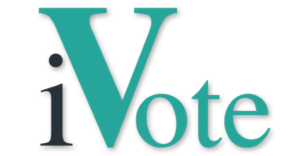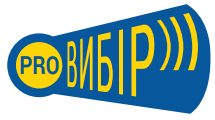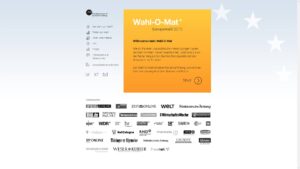


Kyiv’s main media outlets keep ignoring Ukraine’s new voting advice applications
So far, Ukraine’s major newspapers and electronic media have largely ignored the freely available novel Ukrainian voting advice applications (VAAs) designed to help voters to make more informed and rational decisions on 21 July. VAAs are computerized instruments that summarize in circa 15 to 40 statements or questions those topical themes that are the most controversial between major parties competing in an upcoming election. Citizens are asked to indicate their positive, negative or neutral opinion regarding concisely formulated and somewhat simplified policy proposals. At the end of the game, the computer program compares the summarized results of the voters’ answers to the positions that political parties have indicated in their pre-electoral public statements or in direct communication with the VAA organizers.
In spite of their obvious usefulness, Ukraine’s various new VAAs are not widely known yet across the country. Whether the Q&A site IVote of the Odesa Institute for Political Information, the advanced questionnaire of the NGO CentreUA, the sophisticated instrument created by the journal Focus, or the easy to use game PROvybir of the Committee of Voters of Ukraine, none of them has become a topic of wider presentation and broad discussion in major media outlets so far.
To be sure, a few minor stations, like UA: Public Broadcasting, Ukrlife.tv or Ravio NV have reported about, among others, PROvybir. There is also a partnership between the Ukrainian flagship web newspaper Ukrainska Pravda and CentreUA whose – somewhat complicated and not easy to use – questionnaire Vybory2019 can be accessed via Ukrainska Pravda. Yet most of Ukraine’s popular WWW sites and newspapers from Obozrevatel to Segodnya.UA – not to mention the major TV stations – have not been paying much attention to these important instruments of civic education and political enlightenment.
This is in contrast to Germany where the major national media outlets not only eagerly report on the main German voting advice application Wahlomat, on which PROvybir is modeled. Before German regional, federal and European elections, many of the leading mass media from popular sites like BILD, SPIEGEL ONLINE and WELT to highbrow editions like ZEIT ONLINE and Handelsblatt actually become voluntary (and unpaid) media partners of the Wahlomat.
This means that many of these websites not only report continuously on the Wahlomat. Some of them actually put a link to the Wahlomat on their front websites and thus help spreading it in the population. They do so because this increases the number of visitors of these websites, and helps millions of Germans to make a more informed decision on election day. Since its introduction in 2002, the Wahlomat alone has been used over 80 million times.
Numerous other such instruments from the Dutch StemWijzer to the Bulgarian GlasoVoditel.EU are used across Europe. Most of the EU-wide applications are listed on the site VoteMatch.EU. Voting advice applications quickly inform voters about substantive differences between parties. They thereby give elections more sense and support the functioning of democratic processes. Arguably, they help nations to become more self-aware of themselves. They redirect voter attention from popular personalities and campaign images to the substance of party programs and policy proposals.
In Ukraine, such voting advice instruments are perceived by most media editors with disinterest, distrust or even disbelief. Yet, in many European countries, voting advice applications have come to play an important role during the electoral campaign period. They are eagerly spread by numerous mass media. Hopefully, this will still also happen in Ukraine during the last few days before the upcoming election on 21 July 2019.
